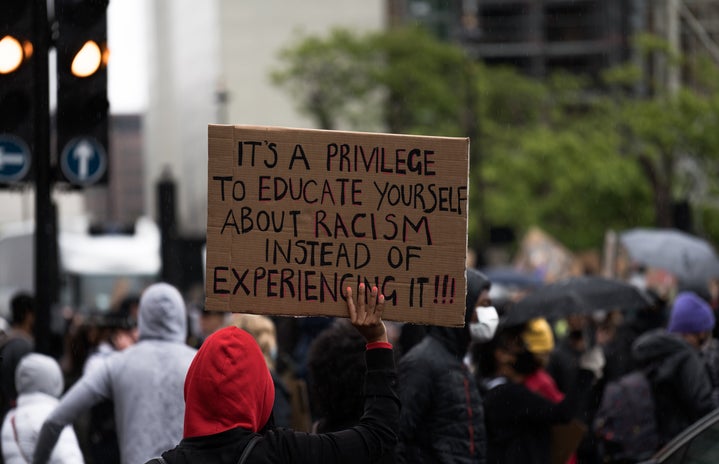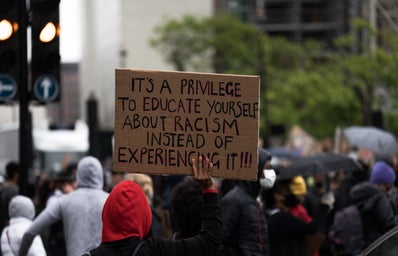***Trigger warning: the following content may be sensitive to the APIDA community***
I sat down to interview two members of the APIDA community, one a current Virginia Tech student and one an alum, to gain some insight into their feelings and experiences. I walked away from this interview feeling deeply disheartened and disappointed with the country in which I live. I hope to further educate other white people who can’t possibly understand the pain this community is feeling.
“As an Asian American, it’s very easy to feel like you don’t belong in America where they’ll always see you as a foreigner, even though I was born here,” said James Zhang, a Virginia Tech graduate. “It’s hard sometimes for people to grasp that we’re not foreigners; we’ve lived here and we grew up here, and the culture is very much ingrained into us. We have this sort of home country, but we can never go back to it; at least, I never could go back because I can barely speak the language.”
“I feel like there was always racism and xenophobia against Asian Americans, but since COVID-19 happened, it got so much more apparent and was a lot more noticeable,” said Yullie Kwak, a sophomore at Virginia Tech.
According to both Zhang and Kwak, anti-Asian hatred and name-calling has always existed, dating back to when they were just children. Zhang shared one story with me in which he remembered being called a racial slur in elementary school, noting that his white peers knew the slur before he did.
“It’s always been there, but I feel like it was always somewhat hidden,” said Zhang. “The name-calling was there, and even though it stopped when people knew better, I feel like COVID-19 gave them an excuse to start spewing hatred toward us.”
The beginning of the pandemic brought anti-Asian hate to a level we’ve never seen before, no thanks to former President Donald Trump, who became what seemed to be the leader in such hate. On March 16, 2020, Trump first Tweeted the phrase “Chinese virus,” and from then on, white Twitter users began to refer to COVID-19 as such. This way of referring to the virus placed blame on the Chinese community, wrongfully so.
“I believe that since no [government officials] checked [the Tweets], it ultimately turned into violence and people started to act out on what people were saying online, which is scary,” said Kwak.
White Americans have seemed to go from targeting one minority to another over the past year. What began with racism and police brutality aimed at the Black community during the beginning of the pandemic in 2020 has now turned into a wave of anti-Asian violence. According to The Center for the Study of Hate and Extremism at California State University, San Bernardino, anti-Asian hate doubled between 2019 and 2020. One year after Trump’s Tweet that placed blame on the Asian community, six Asian women were shot in Atlanta. It was the beginning of the spa shootings in which members of the Asian American community lost their lives.
“There’s a lot of anti-Blackness in our society. In this context, we have to work together with the Black community because our one shared experience is how white supremacy uses us to pit us against each other,” said Kwak. “That’s how it’s been, and it’s been like that throughout BLM, but now that [the APIDA community] is being targeted, it’s gotten worse.”
For some, finding other students who share a common background is key in feeling safe and welcome on campus. Zhang mentioned how being a member of the Chinese American Society helped him find his place during his time at Virginia Tech, but both Zhang and Kwak agree that the university has fallen short in recognizing its Asian American students.
“It seems like the administration doesn’t even look into their own biases or even ask the basic questions about the APIDA community and what we want,” said Zhang.
“Our school hasn’t really addressed any of this and it definitely hurts,” said Kwak. “Something very tragic happened, a lot of people were killed, and yet there was nothing said about it. Virginia Tech has a pretty big Asian American and international student population, and that has been a little disheartening.”
Despite an abundance of anti-Asian hate, Zhang remains optimistic, noting that there are ways to recognize Asian Americans as people and as deserving members of society.
“Sharing Asian American stories, listening to us, is always important,” said Zhang. “As allies, I think one thing people can do is tell stories or experiences they’ve had with Asian Americans or people from the APIDA community because it humanizes them. Especially because segregation is very much real in the United States, it’s important to reach across communities to share stories. I have my own stories, same as Yullie, and same as many of my other APIDA friends, and even the smallest actions we take are very meaningful. Even the smallest of gestures help us to view someone with life and personality rather than just a faceless APIDA person.”


